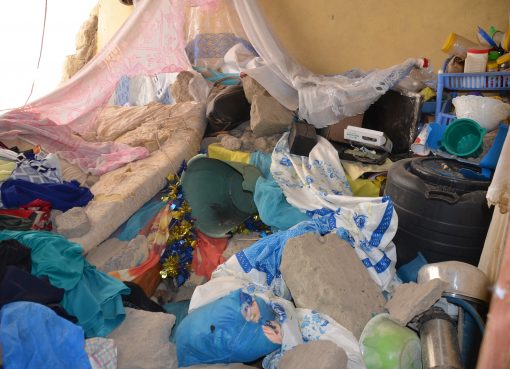Local leaders in Baringo have called for construction of mega projects like dams and irrigation projects as a permanent solution to the perennial drought menace.
Speaking during a food distribution exercise in Nginyang’ centre, Tiaty Sub-county, the leaders urged both local and national governments to consider setting up such mega projects in the drought affected areas.
Loyamorock ward MCA Maria Losile urged both the national and county governments to invest the monies used in emergencies to fund mega irrigation projects which would provide food security.
“We have large tracts of land which is arable and if we get water, we will harvest a lot of food,” added Losile
Member of County Assembly for Silale ward Nelson Lotela noted that 54 bore holes have not been repaired to up water supply in Baringo of which 9 of the 54 were in his ward.
Lotela said that Silale ward has no permanent source of water but depended solely on Kapedo waterfalls where temperatures have risen to 69 degrees Celsius.
Tiaty Member of Parliament William Kamket urged the government to look into the Amaya Dam project which had stalled, adding that if completed, it would put thousands of hectares under irrigation and alleviate food shortage.
Baringo Senator Gideon Moi however said the Amaya project had not stalled and that a stakeholders meeting was in the offing to kick start the project.
Devolution CS Eugene Wamalwa also confirmed that the government was still pursuing the mega dams project to be used for irrigation.
“In the near future, we will not be distributing relief food but we will be getting surplus food from the irrigation schemes to be set up here in Baringo,” said Wamalwa.
He said that Baringo has a lot of potential and once the Amaya, Radat and Perekei dams were completed they would aid in irrigation.
“We should accept that climate change is here with us and we should change from relying on rain fed irrigation and adopt irrigation based farming,” advised the CS.
The leaders were speaking during an emergency relief response where they distributed 700 bags of maize and beans from the national government and another 170 from the county government.
By Job Kelwon and Christopher Kiprop
Friday, November 22, 2024




